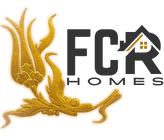We Have Answers For You
A: First of all don’t confuse a down payment with closing costs. Actually to close on a home you need money for closing costs and a down payment. The amount of down payment depends on the type of financing. Some loan programs have a zero down payment (depending on your qualifications) and others
can require up to 20%. Link to Nancy Frate contact information.
A: Really, there are two types of home loans; conventional and government guaranteed. There are several conventional types; straight conventional, portfolio, and some first time home buyer loans. On the government side (not funded by government but Guaranteed) from federal government there is FHA and VA from State of New York Mortgage Agency (SONYMA).
A: Much of what makes up closing costs is related to the Loan. There is also an adjustment for taxes which may have been pre-paid by the seller and setting up an escrow account with the lender to pay for future taxes. There is also a fee for your attorneys services, in New York State you are required to use an attorney when purchasing a home.
A: Like many answers in this process it depends on what type of Financing you use. If you pay cash it can happen in about a month. Financed purchases typically take 45-60 days to close. The time it takes to close can also be affected by the sellers time table, they may require additional time to find suitable housing.
A: Technically no, there is no law or regulations for this, however, it is a great idea. Most sellers won’t let their homes be shown to “prospects” who are not already preapproved. Getting preapproved also tells you what you are able to afford, and allows you to move faster once you find the home you want.
A: In the Real Estate world the term “escrow” is applied in two different scenarios. The first is when you make an offer as a buyer you put up “Good Faith Money”, this is a deposit that binds the contract, it is a way to show the seller you are serious. That “deposit” is held is an escrow account by the sellers Broker. No one has access to it until closing. At this time it is credited to the buyer. The second scenario refers to “tax escrow”. If the buyer is purchasing using a mortgage, the lender collects one twelfth of the yearly property taxes along with the home owners insurance within each monthly mortgage payment the buyer makes. That money goes into an Escrow (SAVINGS) account that the lender uses to pay the school and property taxes.
A: Title insurance is an insurance policy that insures the policy owner against financial loss if the title of the home is not good.
A: The simple answer is if you can purchase your next home and then sell you existing one you will find it way more beneficial. You will be able to control timing, expenses and feel less pressure to find a new home.
